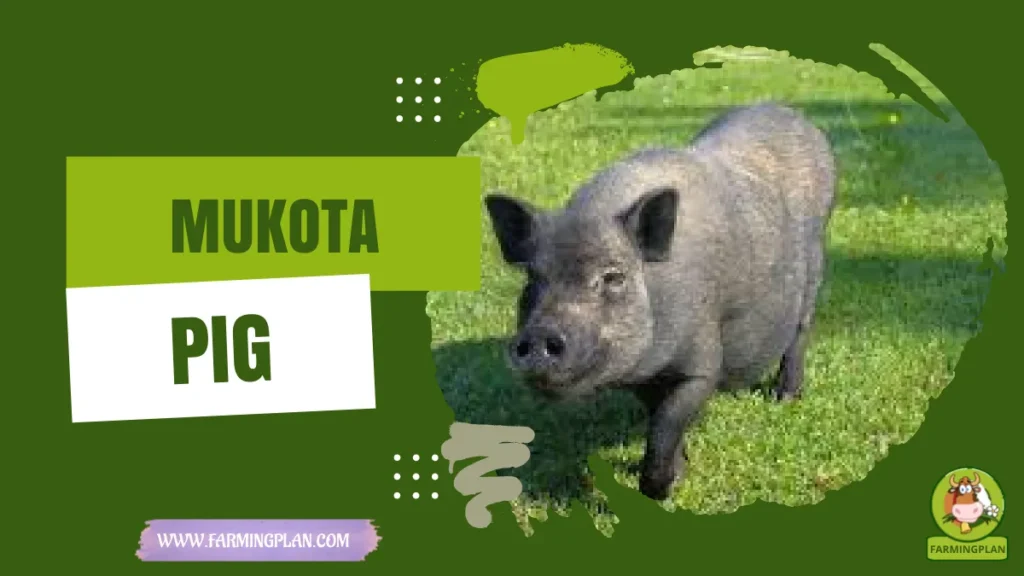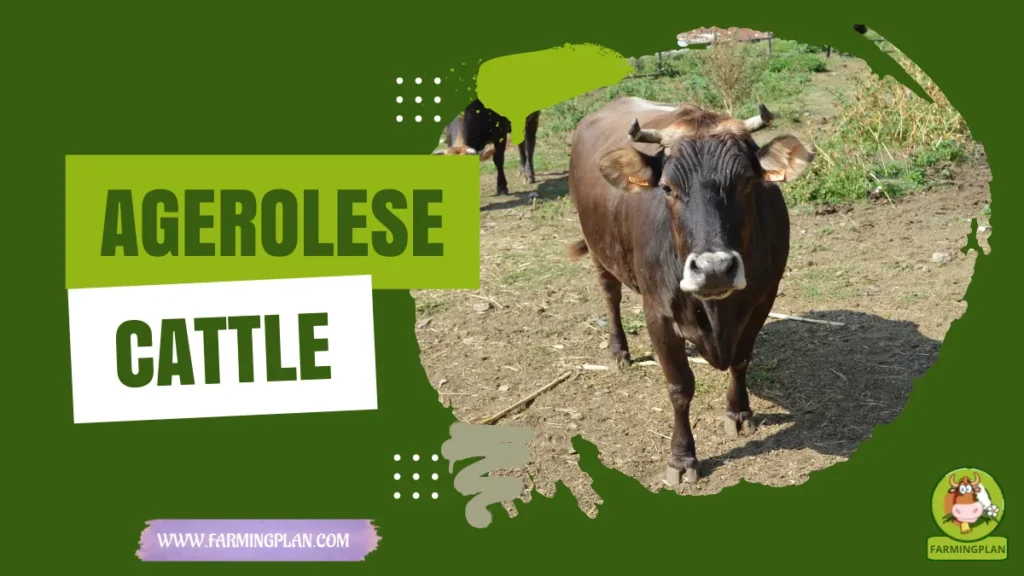The Large Black Pig, with an impressive size, friendly character, and premium bacon quality, is a breed which is noticed. This heritage hog is popular in British breeds because it is known for its dark skin, the floppy ears, and strong foraging abilities. Indeed for both small scale farmers and those who are breeders or even concerned individuals, this pig has got something to offer unique. Framed for its maternal and docile nature, the ability to live outdoors; the Large Black Pig radiates an air of mystery and appeal to the farm. Now that we know about this traditional pig breed, let us find out what part of it makes it so fascinating.
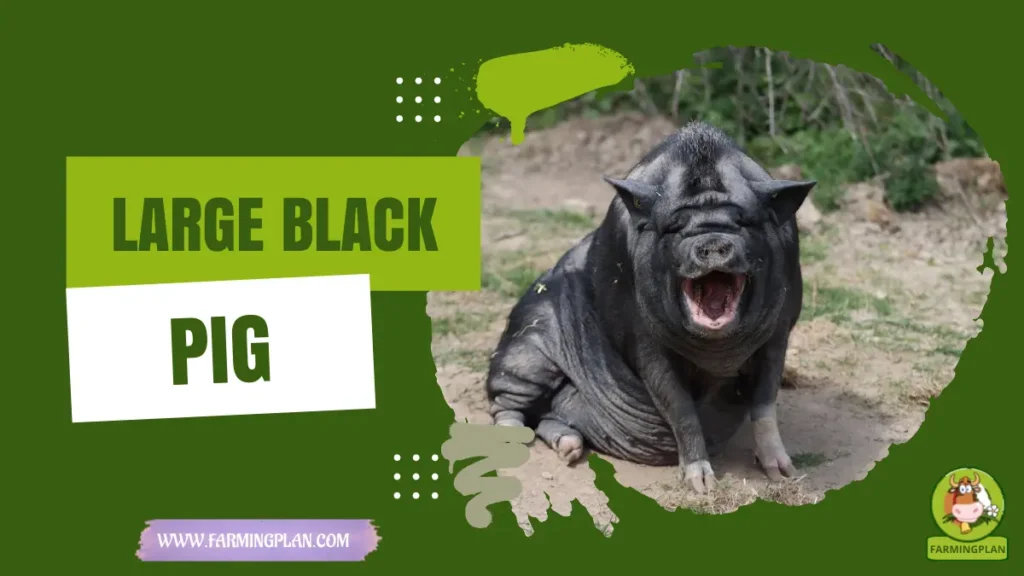
History & Origin
The Large Black Pig has a fascinating history that stretches back to 16th-century England. This historic pig breed developed mainly in the counties of Devon and Cornwall, where farmers prized its ability to thrive outdoors and grow large on pasture. The breed likely has roots in Chinese breeds, which influenced many English pig breeds at the time due to trade with the Far East.
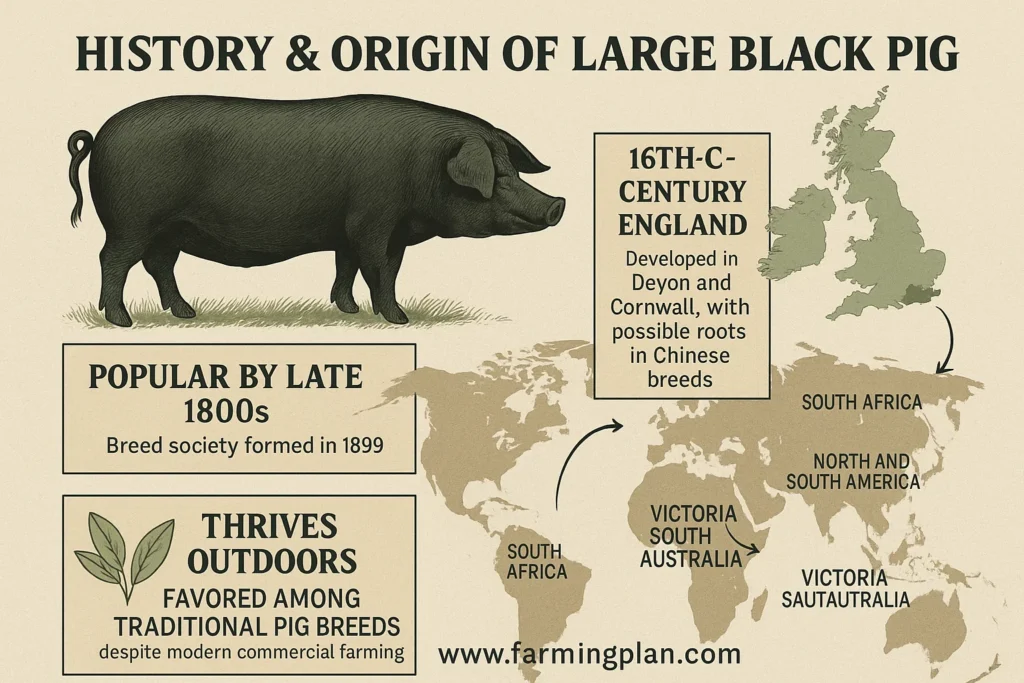
By the late 1800s, the Large Black Pig became a popular choice across England, especially in East Anglia. Its adaptability to different climates and its ability to thrive outdoors led to the creation of a breed society in 1899, helping farmers preserve and promote the Black breed. Over time, this pig made its way to South Africa, North and South America, Canada, and even Victoria, South Australia, where it remains an essential part of heritage breed populations.
Despite modern commercial farming favoring White breeds, the Large Black continues to shine among traditional pig breeds, especially in the slow food movement. Its story is one of survival, integrity, and global respect. As a reader, you can take pride in being part of a community that values and respects this breed across the world.
Read More: Large White Pig: Usage of Large White Pig
Characteristics
The Large Black Pig is easy to recognize thanks to its bold features and impressive size. This attractive breed has a long, deep body, covered in jet black skin that helps protect it from sunburn—making it perfect for outdoor breeds. One of its standout features is its large, lop-eared head. Those floppy ears often hang over its eyes, which may look funny but help shield its vision while rooting through fields.
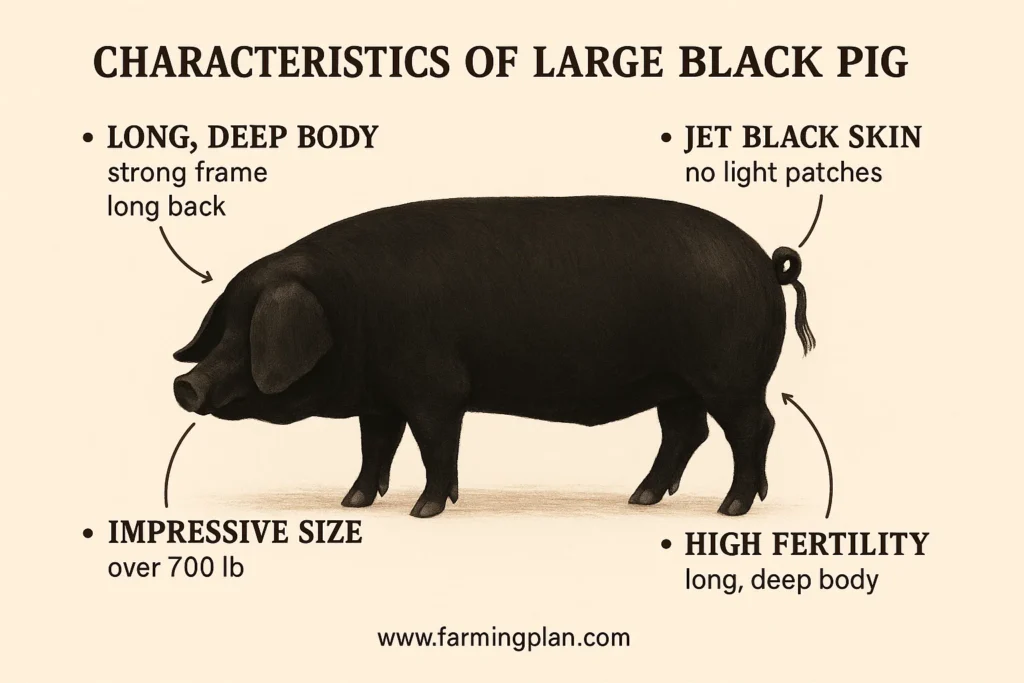
Boars can reach a gigantic size, weighing over 700 pounds, while sows also grow large and sturdy. Their wide jowls and powerful build make them ideal for bacon production, especially the bacon type that calls for firm fat and flavorful meat. Their skin stays dark from head to toe, with no light patches, which is a key marker of the Black herd population.
Each boar line carries slightly different traits, but all Large Blacks are known for their strong frames, long backs, and high fertility. Whether you’re raising them for succulent pork or breeding future herds, their physical features make them a solid investment.
Read More: Mangalitsa Pig: A Hungarian Breed of Pig
Nature & Temperament
The Large Black Pig is more than just a pork producer—it’s a truly docile breed that’s easy to handle and enjoyable to raise. Known for its calm personality, this pig rarely shows aggression, which makes it a favorite among farmers looking for friendly breeds. Whether you’re managing a small homestead or a larger farm, its peaceful nature brings less stress to your daily routine. These pigs love to forage. Their natural foraging abilities make them excellent for pasture-based systems. They enjoy digging, rooting, and grazing, which not only keeps them healthy but also improves the quality of pasture-raised pork.
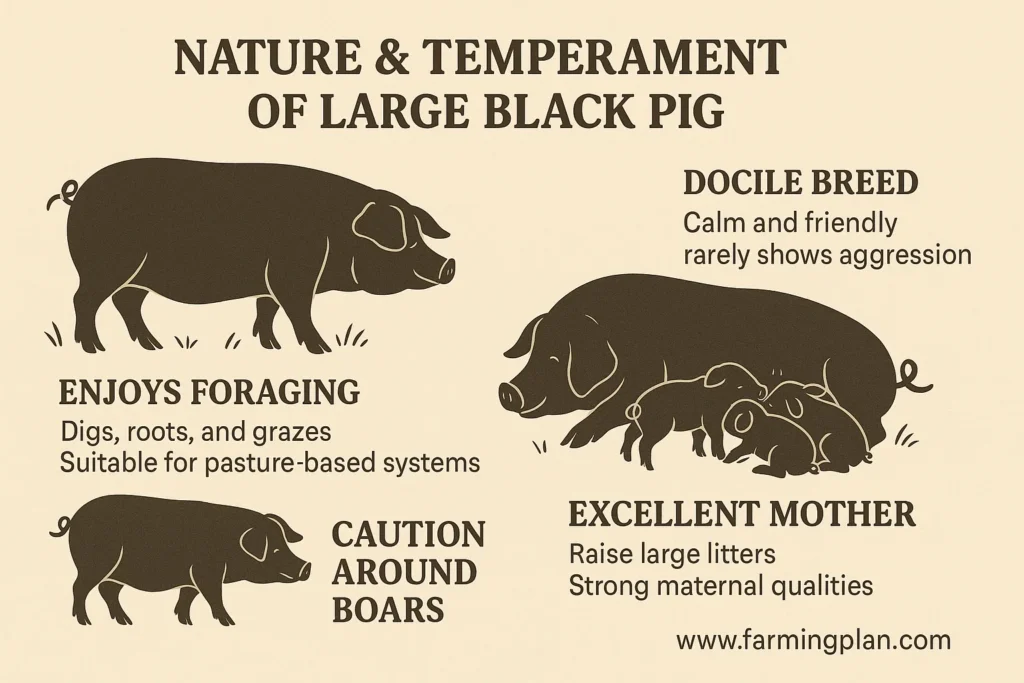
Sows have an excellent mothering ability and often raise large litters without needing much help. Their strong maternal qualities and exceptional milking ability mean the piglets stay healthy and grow fast. While the breed is generally gentle, it’s wise to use caution around boars, especially during mating season. Mature boars can become pushy and may need extra space or supervision. Still, among British pig breeds, the Large Black stands out as a breed with integrity, known for being both smart and trustworthy.
Read More: Mulefoot Pigs: Rare Heritage Hogs With Big Farm Value
Food & Diet
Feeding a Large Black Pig isn’t complicated, but it does require attention to quality and balance. These pigs are outdoor grazers with a natural love for pasture. Their strong grazing ability helps reduce feed costs and improves meat flavor—especially for bacon type pork.
Start with open access to quality pasture. Let them forage for roots, grasses, and bugs, which keeps them active and satisfied. Then, add a mix of grains, vegetables, and legumes to meet their daily nutritional needs. Pigs raised for lean pork or succulent pork benefit from a diet rich in energy and protein.
Avoid overfeeding. These pigs have a strong appetite, and too much food can lead to weight issues. A growing indicator of obesity is excess fat around the jowls and belly. Keeping an eye on their shape helps ensure better pork quality and longer-lasting health. Young piglets and nursing sows need extra nutrition, especially for growth and exceptional milking ability. Use supplements like soy meal or fish meal if needed.
Let them graze freely—it’s nature’s way of making better pork and healthier pigs.
Usage & Purpose
The Large Black Pig is best known for producing high-quality, flavorful pork—especially fantastic bacon. Its long body and balanced fat-to-meat ratio make it ideal for bacon production, giving you juicy cuts that are rich in taste. Whether you’re selling to the slow food movement or just raising pigs for your own table, this breed delivers succulent pork like no other.
Farmers also value this breed for its maternal qualities. Sows are excellent mothers, raising large litters and providing plenty of milk. Many breeders choose Large Blacks to strengthen hybrid vigor in other breeds. Crossing them with other pigs often leads to healthier, fast-growing offspring with strong immune systems and great meat quality.
In addition to its culinary contributions, the Large Black Pig plays a significant role in conservation programs for heritage breed populations. It is a key player in preserving traditional pig breeds and sustainable farming values. From food industry suppliers to backyard farmers, this remarkable breed inspires a sense of commitment to sustainable farming and remains a solid, reliable choice. You’ll find them thriving on small farms in Canada, South Africa, North and South America, and Victoria, South Australia, where pasture systems are common and pork quality matters most.
Special Features
The Large Black Pig stands out not just for its size but for the many unique qualities that make it a favorite among farmers and breeders alike. First, its black skin and dense coat protect it from sunburn, allowing it to thrive outdoors in warm climates—a key reason why it performs so well in places like South Africa and Victoria, South Australia.
This remarkable breed has a strong back and wide frame, perfect for bacon production and producing large pork cuts. Its long, deep body provides more surface area for muscle growth, giving farmers lean pork with just the right amount of fat. mThe breed’s famous foraging abilities allow it to search for food on its own, reducing feed costs and supporting pasture-raised pork systems. Its ability to convert natural forage into flavorful meat is unmatched in modern farming.
Another special trait is its role in preserving traditional breeds. As one of the few remaining Anglian breeds, the Large Black carries historic genetics that contribute to stronger, healthier pigs through hybrid vigor. Thanks to their maternal qualities, sows raise large litters with little human intervention, making them ideal for low-input systems. Their exceptional milking ability and calm temperament help raise strong, healthy piglets.
Health Issues & Prevention
The Large Black Pig is generally a hardy, resilient animal, especially when raised on pasture. Still, like all breeds of swine, it can face certain health challenges. Knowing how to spot early signs of illness and act fast keeps your pigs healthy and productive. One common issue in sows is cystic ovaries, which can affect fertility and reduce litter size. Keeping a regular breeding schedule and watching for unusual heat cycles can help detect this early. Using only licensed boars and avoiding inbreeding also protects the herd’s genetic health.
Another concern is obesity. These pigs love food, and if you overfeed or limit space for activity, they can develop excess fat, especially around the jowls. This not only affects pork quality but can lead to joint stress. Stick to balanced feed and give them room to graze. Skin problems may appear if they are kept in wet, muddy areas for too long. Although their black skin protects against sunburn, poor hygiene can lead to infections. Good drainage, dry shelter, and clean bedding go a long way in prevention.
Also, watch for digestive issues in piglets. Ensure they nurse properly and receive enough colostrum during the first few hours after birth. Sows with exceptional milking ability usually handle this well. Vaccinate regularly, deworm on a schedule, and provide mineral supplements when needed. A proactive approach keeps your Black herd population strong and productive.
Step-by-Step Farming Guide
Raising Large Black Pigs can be a rewarding experience if you follow the right steps. Here’s a simple guide to help you start and care for your herd:
Prepare the Pasture and Shelter
Choose a spacious, well-drained pasture with plenty of grass and natural forage. Build a dry, shaded shelter with clean bedding to protect pigs from harsh weather.
Select Healthy Stock
Buy pigs from reputable breeders with licensed boars to ensure good genetics. Look for pigs with black skin, strong frames, and calm behavior.
Set Up Feeding Plans
Provide unlimited access to fresh grass and forage. Supplement with grains, vegetables, and protein-rich feed to meet nutritional needs without overfeeding.
Water Supply
Ensure constant access to clean, fresh water. Hydration is vital, especially during hot weather.
Monitor Health Regularly
Check pigs daily for signs of illness or injury. Keep vaccination and deworming schedules up to date.
Manage Breeding Carefully
Use mature boars wisely. Avoid inbreeding by tracking pedigrees. Monitor sows for pregnancy and signs of cystic ovaries.
Maintain Clean Living Spaces
Regularly clean shelters and remove wet bedding. Good hygiene prevents infections and skin problems.
Provide Enrichment
Give pigs room to root and explore. Natural behaviors support mental health and improve meat quality.
Harvesting and Processing
Plan for humane and timely processing to maintain succulent pork quality. Work with trusted butchers familiar with heritage breeds.
Expert Tips & Best Practices for Raising Large Black Pigs
To get the most from your Large Black Pig herd, follow these pro tips shared by experienced breeders and farmers:
- Choose the Right Boars: Use licensed boars known for strong genetics and hybrid vigor to improve herd health and growth rates.
- Prioritize Pasture Quality: Invest in diverse forage. The better the pasture, the tastier the pasture-raised pork will be.
- Balance Feed Carefully: Avoid overfeeding to prevent obesity, which can reduce meat quality and cause health issues. Keep an eye on your pigs’ size of jowls as an obesity indicator.
- Respect Boar Behavior: Be cautious around mature boars, especially during breeding. Give them space to reduce stress and aggression.
- Keep Detailed Records: Track health, breeding, and growth to make smart management decisions.
- Promote Slow Food Values: Consider marketing your pork to the slow food movement to attract customers who value quality and heritage breeds.
- Support Breed Conservation: Join or support the breed society to help protect the Black herd population and traditional pig breeds worldwide.
Where to Buy Large Black Pigs: Finding Your Next Herd
It is very important to search for healthy stock from reliable sources if you intend to bring up Large Black Pigs. First contact established breeds societies or heritage breeds organizations in your locality. Such groups usually keep the directories of licensed boars and trusted breeders who are professional at this old breed.
In North and South America, several farms focus on heritage breed populations, offering pigs with documented pedigrees and strong genetics. Canada and parts of the USA have growing communities of Large Black breeders. In Victoria, South Australia, and South Africa, look for farms connected to local conservation efforts supporting British breed preservation.
Online heritage pig networks and farming forums serve to give leads and tips on the best way to acquire healthy pigs. It could be helpful for you to go to check the farms and see the health of pigs, their size, and temper; If you want to buy them.
Do remember to ask for health history, vaccination record, parentage about the pig. Selecting from a stock of animals with integrity, means you’re getting the best start to your Large Black herd.
FAQ
What are the key characteristics of the Large Black Pig?
The Large Black Pig is entirely black, with distinctive lop ears that often cover its eyes. It has a long, deep body and is known for its docile temperament, making it suitable for outdoor farming systems.
How does the Large Black Pig’s diet affect its health?
The Large Black Pig prosperes with pasture grazing as the part of diet catering for its scavenging powers. Overfeeding can result in obesity, most often in sows, which is a cause of health problems, such as cystic ovaries.
What are common health issues in Large Black Pigs?
There are also common health problems like obesity-linked conditions such as cystic ovaries in sows and skin infections in case they are kept in damp conditions. Regular monitoring of the health and good care are needed.
Are Large Black Pigs suitable for small-scale farming?
Yes, they have docile nature, efficient grazes and can thrived in outdoor systems by making them suitable for small-scale, sustainable farming activities.
Where can I purchase Large Black Pigs?
Large Black Pigs can be purchased from specialized breeders and heritage breed societies. It’s advisable to contact local agricultural extension services or breed associations for recommendations.
Conclusion
The Large Black Pig is hardy pig, being docile and black/dull black in colour, with distinctive lop ears. It is a breed derived from United Kingdom that is suitable for outdoor and pasture farming system given its’ good foraging ability and hardiness. This breed is highly-prized for its good meat, which is juicy bacon; and strong maternal instincts. Although they are generally healthy, eating habits together with regular health monitoring are vital in order to avoid some of the common conditions such as obesity. Their soft disposition qualifies them for small scale and sustainable farming practices. Anyone that is interested in raising them is encouraged to buy from well known breeders or heritage breed societies for healthy stock.

